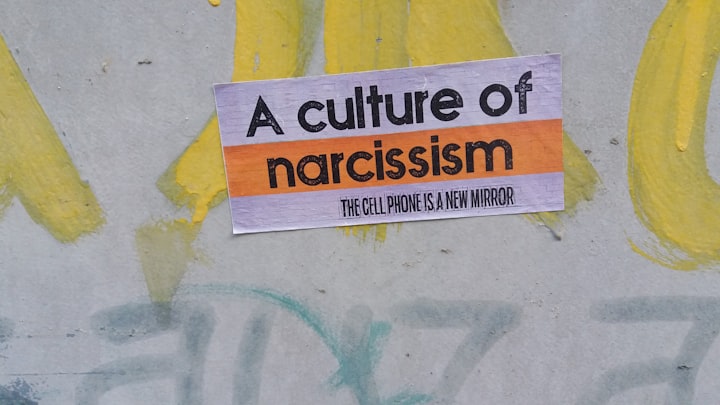
The Covert Narcissist
While the "overt" narcissists tended to be aggressive, self-aggrandizing, exploitative, and have extreme delusions of grandeur and a need for attention, "covert" narcissists were more prone to feelings of neglect or belittlement, hypersensitivity, anxiety, and delusions of persecution. Both shades of narcissism share a common core of conceit, arrogance, and the tendency to give in to one's own needs and disregard others. But that's where the similarities end. Here is a list of common narcissist behaviors and qualities which compounded, are a blueprint for covert narcissism.
Smugness, quiet superiority and self absorption: their quiet brand of superiority complex betrays itself through aloof detachment and disconcerting nonverbal cues. They may not express their negativity outright, but you get the distinct sense that they are barely tolerant with lack of eye contact, condescending glare, eye-rolling, dismissive gestures, quick boredom, impolite yawns, and overall inattentiveness. When they do speak, their comments tend to be critical and judgmental, focusing on their own conceited views. Often, they will make a quick assessment of a person or situation, find it uninteresting, flawed, or unworthy of their attention, and mentally tune out. This seemingly impenetrable smugness is, of course, a front, covering a sense of vulnerability within. Part of the insecurity may be the inability to relate to people meaningfully as human beings.
Passive-aggressive behavior: the deep-seated belief their “specialness” entitles them to get what they want. Passive aggressive behavior such as silent treatment, subtle blame-shifting that makes other people feel bad or question what really happened, procrastinating on tasks they consider beneath them.
High sensitivity to criticism: Criticism threatens their idealized view of themselves.
Envy: They often envy people who have things they feel they deserve, including wealth, power, or status. They also often believe others envy them because they’re special and superior.
People with covert narcissism may not outwardly discuss these feelings of envy, but they might express bitterness or resentment when they don’t get what they believe they deserve.
Feelings of Inadequacy: When people with covert narcissism can’t measure up to the high standards they set for themselves, they may feel inadequate in response to this failure. These feelings of inadequacy can trigger shame and anger or resent for people who they mistakenly perceive to bring attention to said inadequacies.
Lack of Empathy: narcissists are often oblivious to, or dismissive of others’ thoughts and feelings or situations of other people. They simultaneously feel superior and tend to distrust others. Even when you tell them how their attitudes and actions are generating adverse consequences, their response will be more about themselves.
Highly Sensitive: Psychiatrist Glen Gabbard notes that some introverted narcissists are “exquisitely sensitive”. They tend to be affronted by any signs of real or perceived slights, and handle criticism poorly. In the face of negative feedback, some introverted narcissists will defend with an increased sense of superior smugness, invalidation and dismissal (fight), while others will respond with sullen withdraw or silent treatment (flight).
False Humility: This is actually a form of pride but will be shown in a self-deprecating way. Narcissists will play the victim and put themselves down so that they bait you into mistaken guilt and/or complimenting them. They will say they are doing things because they want to, but they are approval-seeking. They are concerned about themselves and are not truly humble.
Their goal is to let you know they are important. Yet they disguise themselves in humility — which isn’t anything like the true humble character of one who puts others before themselves. Their goal is to make sure they are stroked for their efforts.
Immature Responses: Narcissists are highly sensitive and take offense at simple criticisms. They greatly magnify a perceived or real offense more than it deserves. They are not able to dialogue but deflect blame onto others for their reactions with passive-aggressiveness.
GASLIGHTING: a most vile and manipulative form of narcissism. A tactic in which the narcissist in order to gain more power, makes a victim question their reality. Anyone is susceptible to gaslighting, and it is a common technique of abusers. It is done slowly, so the victim doesn't realize how much they've been brainwashed.
Here are some common red flag things a narcissist will say:
“
About the Creator
Ruby Longstride
Just a hedge witch living in the suburbs with her children, cats, and plants. Dreaming of a house in the woods.....






Comments
There are no comments for this story
Be the first to respond and start the conversation.